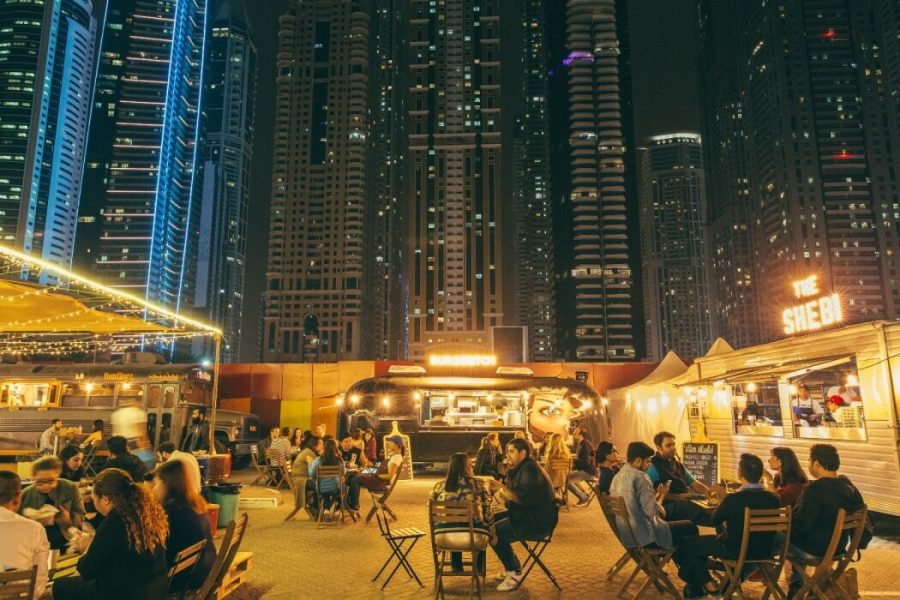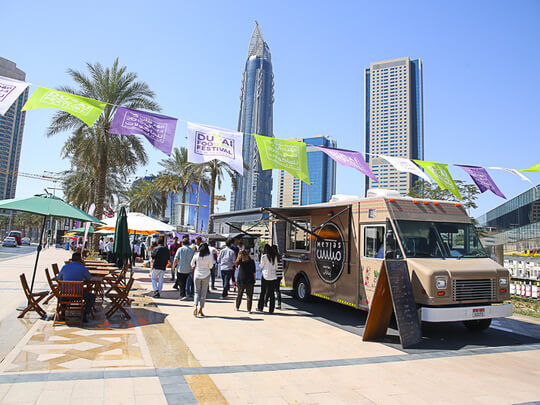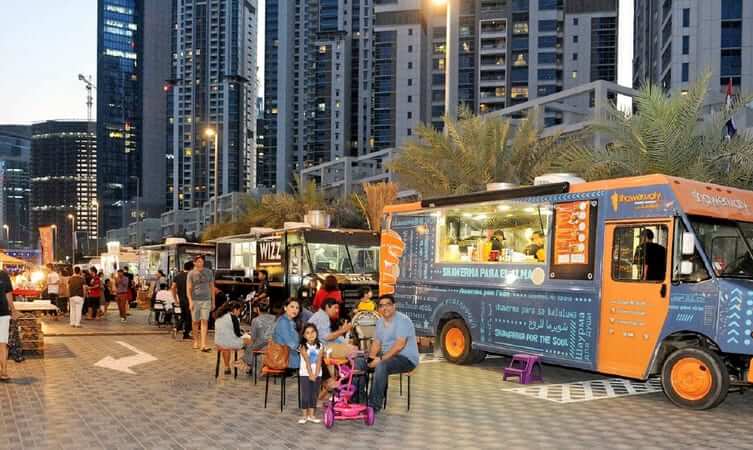Dubai, renowned for its luxurious lifestyle and extravagant dining options, offers a unique culinary landscape where street food thrives alongside gourmet restaurants. In a city where luxury is the norm, street food holds a special place, providing psychological comfort and accessibility to both locals and tourists. This article explores why street food is the best and most comforting in Dubai, drawing on recent research studies and expert insights to understand this phenomenon.
The Allure of Street Food
Street food has a universal appeal that transcends cultures and economic backgrounds. It is often associated with simplicity, authenticity, and community. These elements contribute to street food’s comforting nature, starkly contrasting the usually formal and exclusive nature of fine dining.
Authenticity and Tradition
Street food is deeply rooted in tradition and cultural heritage. It offers authentic local cuisine that is often passed down through generations. A study by Henderson (2019) highlights that street food vendors play a crucial role in preserving culinary traditions and providing access to traditional dishes that might otherwise be lost in the modern culinary landscape.
In Dubai, street food vendors offer a variety of traditional Middle Eastern dishes, such as shawarma, falafel, and manakish, alongside international favorites. This blend of local and global flavors provides residents a comforting reminder of home and tourists with an exciting culinary adventure.
Affordability and Accessibility
In a city known for its luxury, street food’s affordability and accessibility make it an attractive option for many. Street food offers a budget-friendly alternative to the high prices of fine dining, allowing people from all economic backgrounds to enjoy delicious meals.
Research by Kwon and Tam (2021) found that affordability is a significant factor in the popularity of street food. The study revealed that lower prices enable more frequent consumption, making street food a staple in the daily lives of many individuals.

The Psychological Comfort of Street Food
The psychological comfort derived from street food involves emotional connections, sensory experiences, and social interactions.
Emotional Connections and Nostalgia
Street food often evokes strong emotional connections and nostalgia. Its flavors, aromas, and textures can trigger childhood memories, family gatherings, and cultural celebrations. These associations provide comfort and familiarity, especially in a bustling and diverse city like Dubai.
A study by Wansink et al. (2017) found that comfort foods are often linked to positive memories and emotional well-being. The study emphasized that foods associated with happy memories can provide emotional comfort during stress or uncertainty.
In Dubai, the diverse population means street food vendors offer dishes from various cultures, allowing people to connect with their heritage and relive fond memories through food. This emotional connection enhances the overall appeal and comforting nature of street food.
Sensory Experiences
The sensory experiences associated with street food are crucial in its comforting nature. The vibrant colors, enticing aromas, and rich flavors stimulate the senses, creating a pleasurable eating experience.
Research by Spence et al. (2019) highlights the importance of multisensory experiences in food perception. The study found that sensory-rich environments can enhance the enjoyment of food and contribute to a more satisfying eating experience.
Street food markets in Dubai often bustle with activity, offering a sensory overload that engages sight, smell, taste, and sound. This multisensory experience adds to the comfort and enjoyment of street food, making it a favorite among locals and tourists alike.
Social Interactions and Community
Street food fosters social interactions and a sense of community. Unlike the often isolated experience of fine dining, street food encourages people to gather, share, and connect. The communal nature of street food markets and vendors creates opportunities for social bonding and cultural exchange.
A study by Taylor and Bastiaansen (2020) found that social interactions around food can enhance the overall dining experience and contribute to a sense of belonging and community. The study emphasized that sharing meals can strengthen social bonds and improve emotional well-being.
In Dubai, street food markets and vendors serve as social hubs where people from different backgrounds come together. This sense of community and shared experience adds to the psychological comfort of street food, making it a beloved aspect of the city’s culinary scene.

The Popularity of Street Food in a Luxurious City
Despite the prevalence of luxury dining options, street food remains popular in Dubai for several reasons.
Convenience and Speed
In a fast-paced city like Dubai, convenience and speed are essential factors in the popularity of street food. Street food vendors offer quick, ready-to-eat meals that cater to busy lifestyles. This convenience makes street food an attractive option for those who need a quick and satisfying meal on the go.
Research by Horng and Tsai (2020) found that convenience and speed are significant determinants of food choices in urban environments. The study revealed that the fast-paced nature of city life increases the demand for quick and accessible food options.
Culinary Diversity
Dubai’s diverse population is reflected in its street food offerings. Street food vendors in Dubai offer various cuisines, from traditional Middle Eastern dishes to Asian, African, and Western favorites. This culinary diversity allows people to explore new flavors and enjoy a variety of dishes in a single setting.
A study by Lee and Yen (2021) found that culinary diversity is a key factor in the popularity of street food. The study highlighted that diverse food options enhance the appeal of street food markets and attract a wide range of customers.

Cultural Exchange and Tourism
Street food markets are popular tourist attractions, offering visitors a glimpse into the local culture and cuisine. In Dubai, street food vendors provide an authentic culinary experience that allows tourists to explore the city’s rich cultural heritage.
Research by Cohen and Avieli (2018) found that street food plays a significant role in cultural exchange and tourism. The study emphasized that street food markets are important for artistic interaction and learning, allowing tourists to engage with local traditions and flavors.
Conclusion
In a city known for its luxury dining options, street food in Dubai holds a special place due to its authenticity, affordability, and psychological comfort. The emotional connections, sensory experiences, and social interactions associated with street food make it a popular and comforting choice for many. Recent research studies further validate the comforting nature of street food, highlighting its role in emotional well-being, sensory enjoyment, and community building.
As Dubai continues to evolve as a global culinary destination, the enduring appeal of street food remains a testament to its unique ability to provide comfort, connection, and a taste of tradition in a city of luxuries. Whether enjoyed by locals seeking a taste of home or tourists exploring new flavors, street food in Dubai offers a comforting and accessible culinary experience that transcends the city’s opulence.

I specialize in administrative technologies and am responsible for training other employees to use advanced systems and applications, including accounting software, mass communication procedures and organizational applications.
